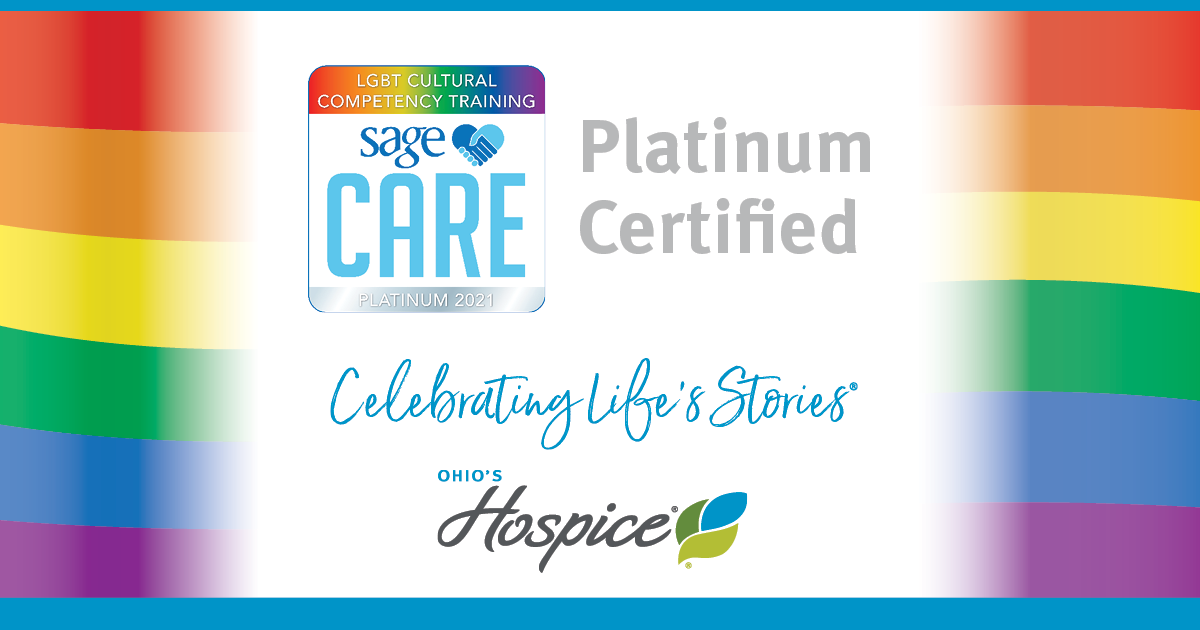
The need for comfort, dignity and respect at the end of life is crucial to providing a good death for patients in hospice care. The LGBTQ community faces unique circumstances that often require an additional level of awareness and sensitivity by hospice staff members and care teams.
To ensure that Ohio’s Hospice is extending that same comfort, dignity and respect to its LGTQ patients and their families at the end of life, the not-for-profit, community-based organization became SAGECare certified in 2019. All staff receive initial and annual SAGECare training on the unique challenges faced by LGBTQ individuals at end of life so they can better understand and respond to those needs. Ohio’s Hospice wants to ensure every individual who is served the organization receives the same superior care and superior services, and that every patient, family, staff member, volunteer and community member feels welcome and supported by Ohio’s Hospice, its teams and its teammates.
Providing inclusive and culturally competent care to LGBTQ patients is crucial to assuring a safe environment as they approach the end of their lives. “The end of life, no matter how sudden or expected, is difficult, ”said Craig Schrolucke, vice president of mission engagement and brand care at Ohio’s Hospice. “To know that you and your loved one will be treated with dignity and respect and feel comfortable receiving the needed care provides peace of mind to patients and families.”
For LGBTQ adults, the end of life of a partner can prompt uncertainty if family or friends might be unaware of their identity or if documentation such as living wills, healthcare power of attorneys, right of disposition of remains documents, and property deeds are not completed.
“In my situation, my partner and I had the proper documentation in place and most family members were aware of our relationship,” Schrolucke said. “However, for some LGBTQ individuals, they can have the rug pulled out from under them. Housing, food, security, and finances are all things that could be uncertain, as well as a potential forced coming out for some individuals, causing the patient not to receive or postpone receiving care. ”These are all important factors for care providers to understand and to incorporate in their work as they serve patients and their families.
In these cases, social workers are able to work with the patient and their loved ones to identify their individual needs and navigate end-of-life care conversations, connect them with additional resources, and assess their bereavement support needs.
The care and support Ohio’s Hospice provides patients and families does not end when the patient dies. Bereavement counseling professionals, who also are trained through SAGECare, provide loved ones with grief counseling and support. These services provide LGBTQ individuals a safe and comforting space to grieve and receive the support they need.
“Our mission is to celebrate the lives of those we have the privilege to serve,” Schrolucke said. “We work hard to ensure that their end-of-life experience is a time that members of the LGBTQ community can feel honored and celebrated for who they are.”
Article by Ohio Hospice Team





